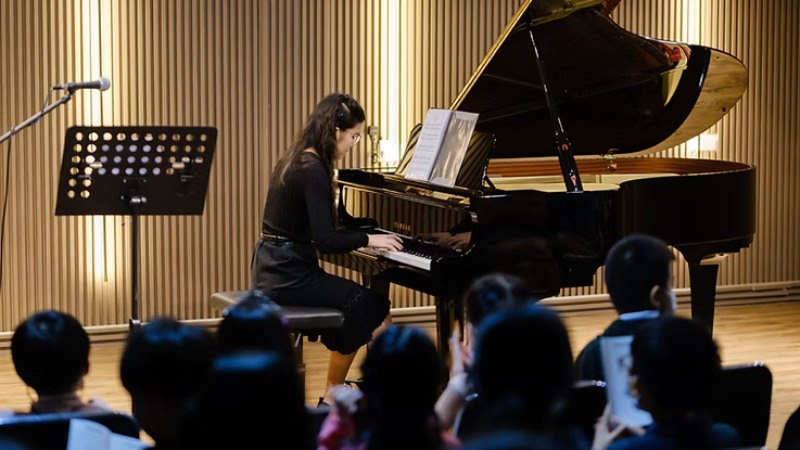
Learning the piano is a rewarding journey that enhances creativity, discipline, and cognitive abilities. Whether you’re a complete beginner or an advanced pianist looking to refine your skills, finding the right Piano Lesson Singapore is crucial. With numerous options available, selecting the best course that suits your skill level can be overwhelming. This guide will help you make an informed decision.
Understanding Your Skill Level
Before enrolling in a piano lesson, assess your current proficiency:
- Beginner: No prior experience or basic knowledge of notes and keys.
- Intermediate: Can play simple songs, read music, and understand basic techniques.
- Advanced: Mastery of complex pieces, improvisation, and advanced music theory.
Knowing your level will help you choose the right class, instructor, and learning method.
Factors to Consider When Choosing a Piano Lesson
1. Determine Your Learning Goals
Your goals will dictate the kind of piano lessons you should be taking. Ask yourself:
- What type of piano do want: classical/ jazz/pop
- Am I studying for a piano exam maybe like ABRSM, or Trinity?
- For fun only or to play professionally?
Identifying your goals will help narrow down the best lessons tailored to your needs.
2. Decide Between Private or Group Lessons
- Private Lessons: Individualized attention, flexible pacing, and customized lessons,
- Group Lessons: Create incubated learning environment for a more participative and cost effective lessons
Choose based on your preference for individual attention or social engagement.
3. Check the Qualifications and Experience of Instructors
Having a Piano teacher that is Certified will greatly affect your learning. You should look for the following instructors:
- Have certificate in formal music education
- At least have experience teaching students your level.
- Employ proven pedagogic techniques and give useful feedback to students
4. Consider Lesson Format: In-Person vs. Online
- In-Person Lessons: Hands-on coaching and immediate instructor interaction.
- Online Classes: With time restrictions Online lessons are very flexible and convenient for busy learners.
Evaluate which format suits your schedule and learning style better.
5. Look for Schools with a Well-Structured Curriculum
A good piano school should have a structured learning pathway that includes:
- Music theory and sight-reading.
- Technical exercises and finger training.
- Performance opportunities and recitals.
Check if the school offers a progressive syllabus that aligns with your skill development.
6. Read Reviews and Testimonials
Student reviews and testimonials can give you insights into the effectiveness of lessons and instructors. Look for:
- Feedback on teaching methods and lesson quality.
- Student success stories and exam achievements.
- Overall learning experience and progress reports.
7. Consider the Cost and Location
Piano lesson fees vary depending on:
- Instructor expertise and credentials.
- Lesson duration and frequency.
- School reputation and facilities.
Additionally, choose a location that is easily accessible to ensure consistent attendance.
8. Take a Trial Lesson
Many piano schools in Singapore offer trial lessons. This allows you to:
- Experience the teaching style.
- Assess comfort level with the instructor.
- Determine if the lesson structure suits your learning needs.
A trial lesson helps you make an informed decision before committing long-term.
Conclusion
Selecting piano lesson in singapore for a right match based on your playing skill, learning objectives and options that available. To qualify the educational scope of instructors, lesson variety and school curriculum will enable you to discover a program which you need in order to grow a better musician. Enjoy the Wait, do your research and most importantly enjoy the piano playing experience.